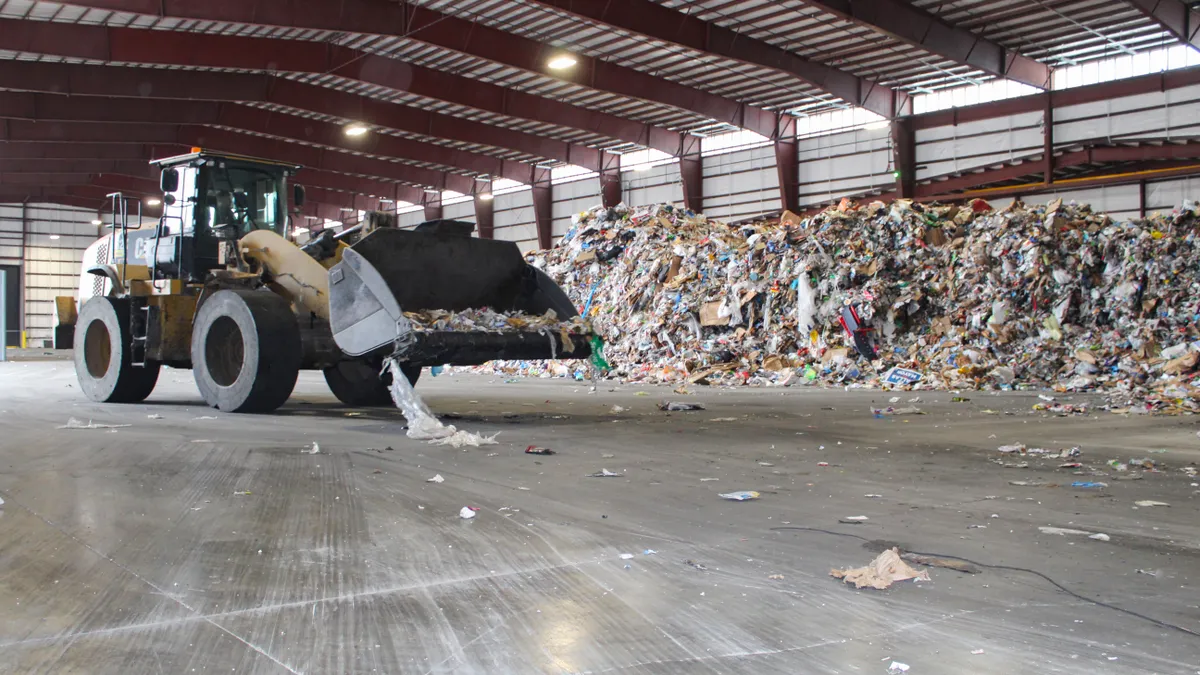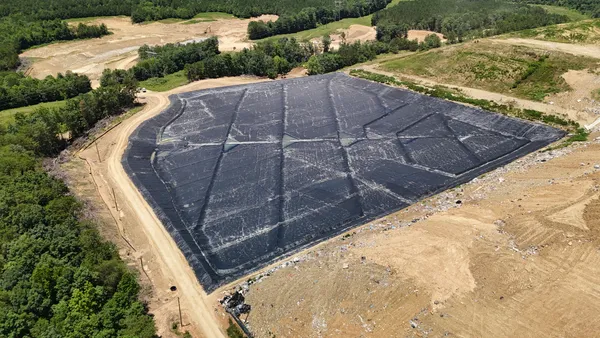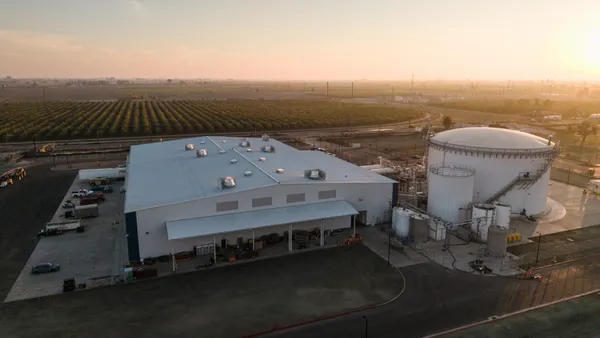Dive Brief:
- S&P Global Ratings and Moody’s Ratings both downgraded LRS in June, citing underperforming earnings and high debt ratios. S&P lowered LRS’ long-term issuer credit rating from a B to a B-, citing “weak” operating performance in 2023. Moody’s downgraded several of LRS’ ratings, including changing its corporate family rating from B3 to Caa1, a mark of high credit risk.
- S&P and Moody’s both project a stable outlook for the company, saying operational changes and recent leadership updates would improve ratings in the future. “We’re aware of the ratings decisions and our team is focused on delivering sustainable results to all our stakeholders,” said LRS CEO Matt Spencer in an email.
- Meanwhile, LRS is conducting a search for a new CFO after Luke Chenery decided to leave the role after about a year.
Dive Insight:
Macquarie-backed LRS, a vertically integrated Midwest hauler, reported revenue of about $610 million for the prior year ending March 31, 2024, per Moody’s. The company has undergone a series of significant C-suite and operational changes in the last year as it continues to integrate several acquisitions. LRS also underwent a round of layoffs in the spring.
The renewed CFO search comes on the heels of the company’s recent move to reshuffle its leadership lineup. Spencer took on the role as CEO in the fall of 2023. LRS hired a new chief operating officer, Tony Cincotta, in December, along with a new human resources officer, Kate Daly. In the spring, LRS brought in Steve Blyth as its new chief revenue officer.
Chenery, who has worked for several companies affiliated with Macquarie, served as CFO for about a year. Spencer said Chenery ultimately decided to leave LRS and will be returning to Macquarie “in an advisory capacity.” Dan Goldstein, LRS’ executive vice president of business development, will serve as interim CFO.
“His expertise will be instrumental in continuing to optimize our financial operations, achieving our long-term goals, and advancing our commitment to innovation in the waste and recycling industry,” Spencer said in an email.
While Moody’s noted the recent management turnover can be “disruptive and contribute to underperformance,” S&P said it doesn’t foresee the recent CFO change-up as having a negative effect on LRS’ financial management. S&P further pointed out Blyth’s hiring as a positive move for the company, saying he will “seek to drive growth via a mix of better volumes and price-cost discipline.” It expects to see about 6% organic growth this year.
While LRS continues to cement its leadership base, S&P and Moody’s noted several financial factors in need of improvement. In addition to Moody’s lowered corporate family rating, it lowered it rating for LRS’ senior secured bank debt from B3 to Caa1. It also lowered its probability of default rating from B3-PD to Caa1-PD and changed its credit impact score from CIS-5 to CIS-4.
Moody’s said the company’s escalating operating costs, mainly from labor and maintenance, led to weaker earnings performance. It also noted additional costs in 2023 to hire an auditor to help “resolve findings of accounting irregularities.”
Moody’s also pointed out LRS’ aggressive growth strategy — most recently expanding its Chicago-area footprint while also growing in Michigan and Indiana — has contributed to rising debt levels. That has hurt cash flow due to high capital spending and interest expense. This financial strategy “has resulted in sustained high leverage and more protracted timing to improve credit metrics.”
Moody’s also noted that over 40% of waste LRS collects for recycling or diversion is collected at cost, meaning “it is essential to price collections/contracts adequately upfront while running operations cost efficiently to achieve an adequate return.” Contracts that include annual price escalators “may not always fully offset the rate of cost increases,” it said.
However, Moody’s pointed out that LRS is in a “good competitive position in its core markets” and enjoys steady waste volumes and contracts that offer somewhat stable recurring revenue. Its recycling facilities, transfer stations and landfills, along with other recent vertical integrations from acquisitions, should continue to add support to the business as the new management team continues to work on improvements.
S&P also pointed out LRS’ vertically integrated businesses LRS acquired in 2023, including in Michigan and Illinois, “should provide solid platforms to enhance value.”
LRS’ 2023 earnings before interest, taxes, depreciation, and amortization underperformed against expectations, according to S&P. The report noted that EBITDA was “only slightly greater” than what it was in 2022, despite showing “meaningful incremental revenue in the top line” of 22% growth, 14% of which was acquisition-driven.
Profitability for the first quarter of 2024 “did not get off to a great start,” S&P said, noting that despite a 5.8% increase in revenue, margins “severely underperformed” compared to the same period the previous year. LRS “has not generated positive operating income nor operating cash flow in any of the past nine quarters,” S&P added.
It also flagged weak credit measures, estimating LRS’ adjusted debt-to-EBITDA ratio was 10.3x as of the end of March, about a three-turn increase from the same time in 2023. S&P expects operational improvements will help lower that ratio to a range of 6.5x to 8.5x range. Moody’s estimates adjusted debt-to-EBITDA will be about 7x in 2024, higher than its expected 6x rate.
S&P and Moody’s both noted that ongoing labor costs will continue to affect operations for LRS.LRS also faces higher labor costs this year related to new union contracts, such as certain LRS residential and rolloff drivers joining the Teamsters in December. LRS adjusted some fleet maintenance policies to offset those added costs, S&P said.
Both Moody’s and LRS say they are keeping an eye on LRS’ liquidity and efforts to improve operational performance and debt leverage — key factors that will determine whether the ratings agencies issue future upgrades or downgrades.















